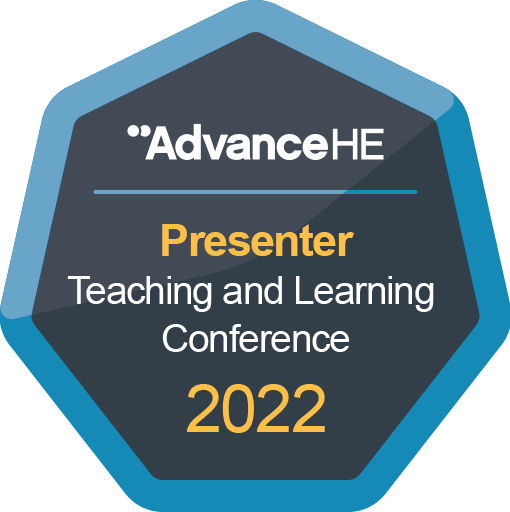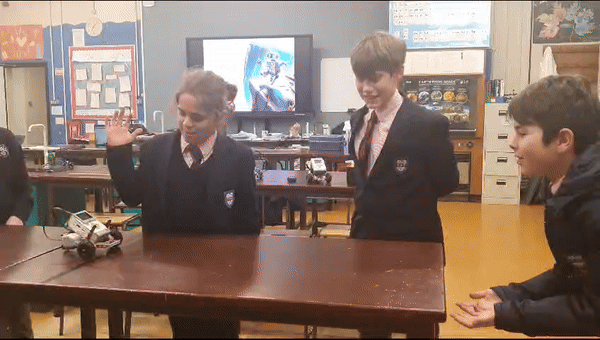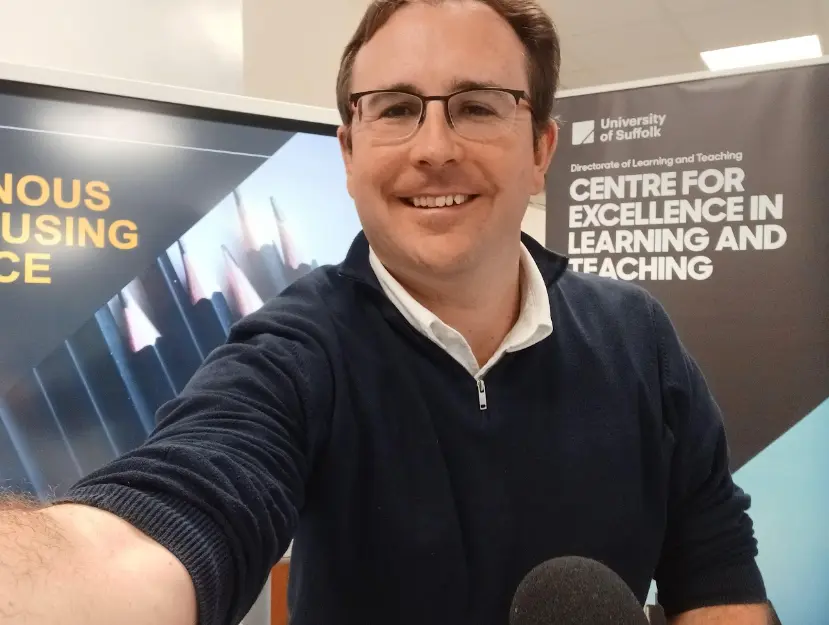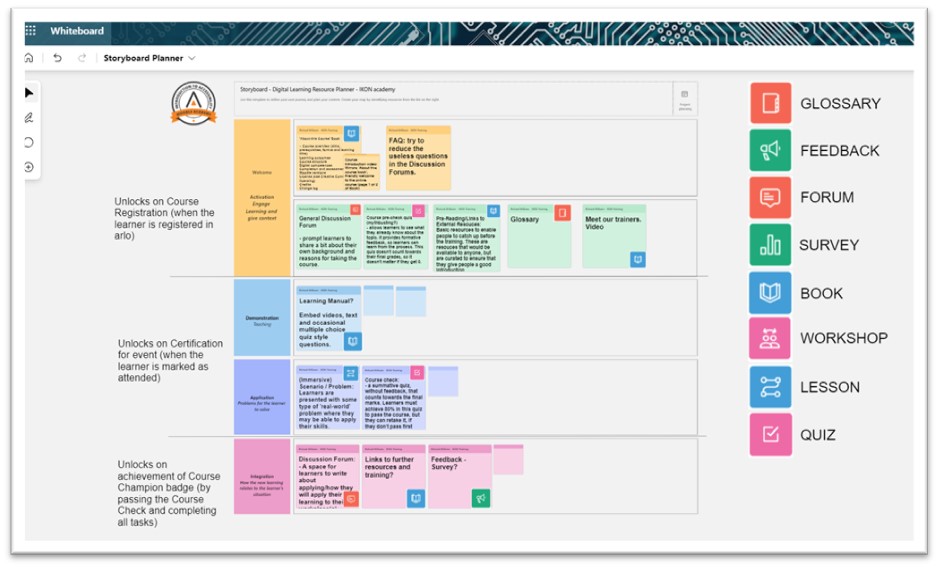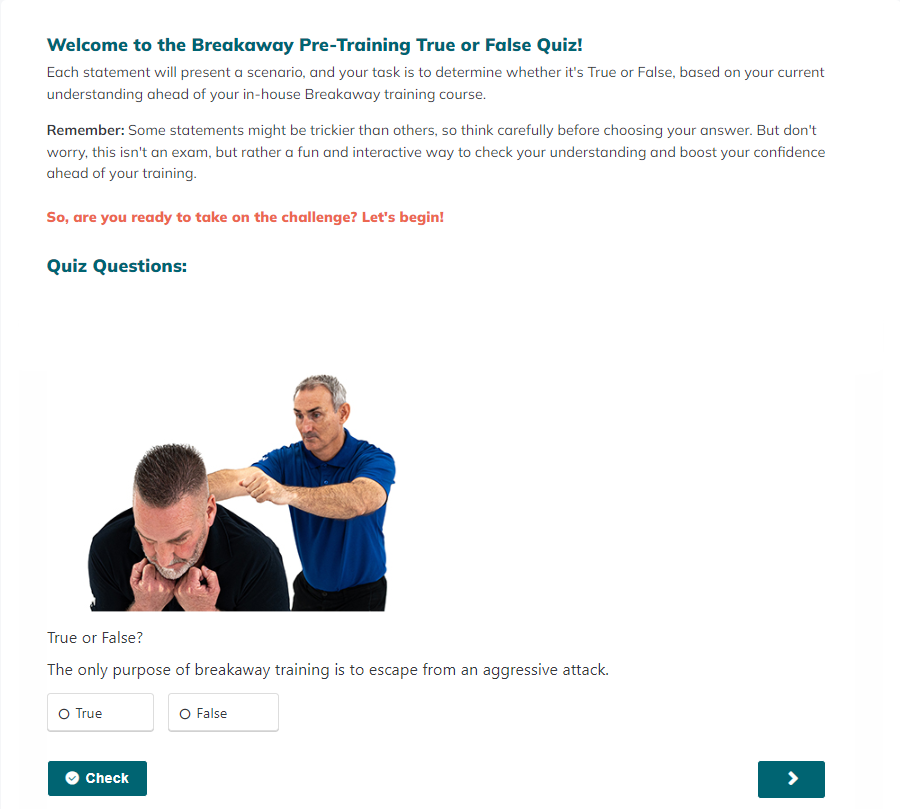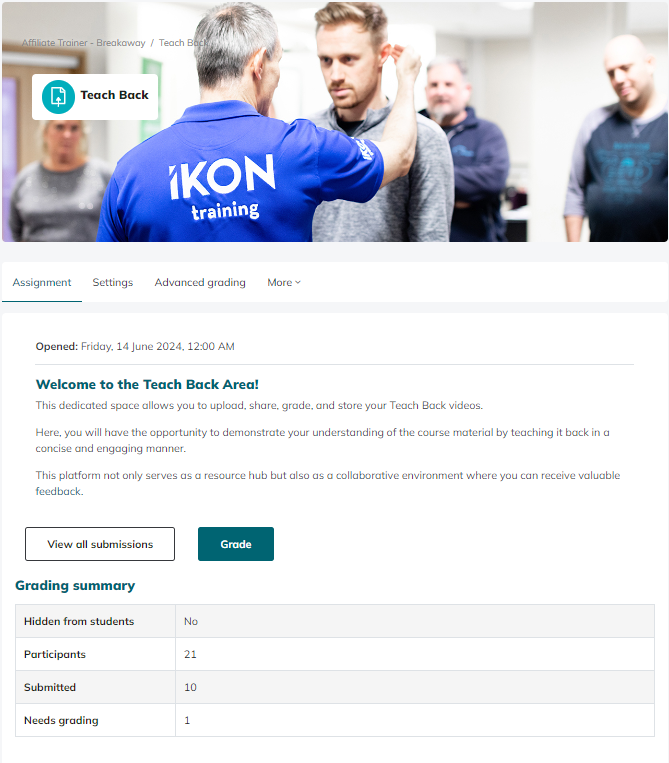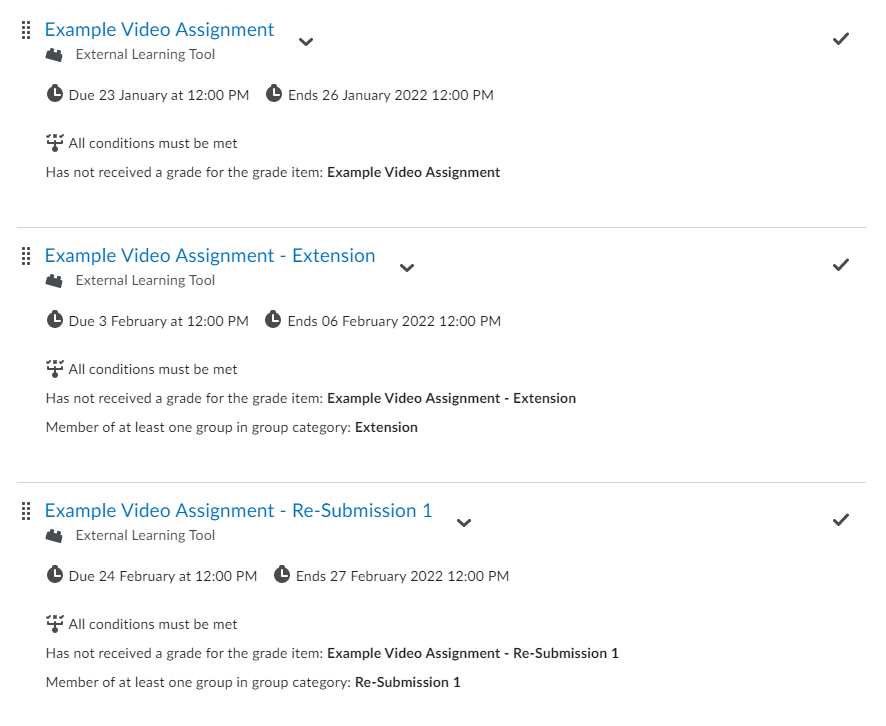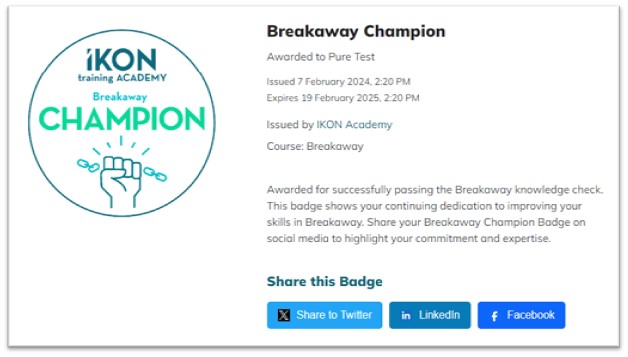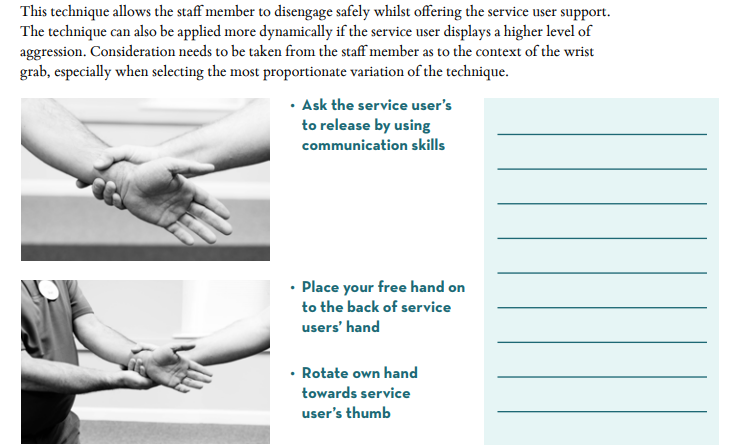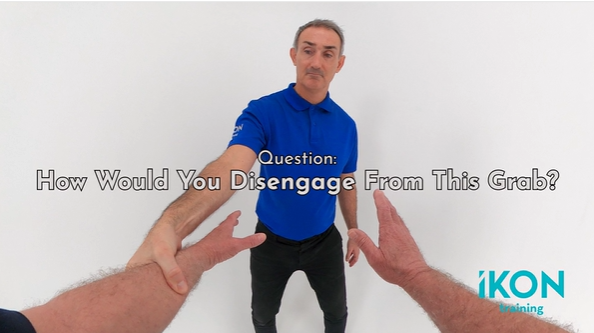Teaching and Learning
Core Area 2: Here, I explore my experiences and reflections on enhancing teaching, learning, and assessment through technology.
Evidence of Presenting at National Conference
This badge - which links to my actual credentials, was awarded to me for presenting at the Advance HE Conference 2022, where I presented on the subject of Gamification and Immersive Learning. The feedback I received highlighted the audience's interest in practical approaches to gamification, which further reinforced my belief in the value of immersive learning strategies for increasing engagement.
Core Area 2a Understanding of Teaching, Learning, and Assessment
Teaching
Classroom Teacher
With over a decade of experience as a Classroom Teacher, my journey includes presenting at the BETT Exhibition, as highlighted in a video here. I achieved Qualified Teacher Status (QTS) in 2010. This journey reflects a dedication to innovative teaching methods and a commitment to continuous professional development. My classroom experience has been instrumental in developing my understanding of learner needs, which has been a foundation for my later work in digital learning environments, ensuring that technology serves as an enabler rather than a barrier to learning.
Trainer Upskilling - Trainer Development Days
In my role at IKON Training, I have been instrumental in integrating technology into our teaching, learning, and assessment processes. This involved a deep understanding of pedagogical principles and how they can be enhanced through technology. My approach was always centred on making technology accessible to trainers, many of whom were initially resistant to change. By focusing on demonstrating the practical benefits—such as how MS Teams could facilitate smoother communication and collaboration—I was able to build confidence and enthusiasm among the trainers.
While developing Operational Processes and new Learning Material in Moodle, I have also presented to our trainers on many occasions at 'Trainer Development Days' on a range of skills, including how to make use of the technology we already have. Most recently, I demonstrated the correct techniques for digital delivery, and the efficient use of technology for effective online training presentation in light of the release of a new version of MS Teams. This is always an ongoing process as technology updates and so I need to roll-out new training, guidance or advice. Feedback from these sessions has often indicated that trainers appreciate the hands-on, practical nature of the examples provided, which helps them see the direct applicability of the skills in their own contexts.
Robotics Club
After a two-year hiatus, I've recently re-engaged with education, conducting a series of Robotics workshops, details of which can be found here. My enthusiasm for robotics was ignited in 2013 when I coached a team at the RoboCup World Finals, an experience that profoundly shaped my career. Initially, my focus was on programming simulated robots within a CoSpace environment. Since then, I've led teams to European competitions and achieved success in virtual world championships, broadening my expertise to encompass LEGO robotics, as well as Arduino and Raspberry Pi-based devices. The experience of coaching a diverse group of students and witnessing their development was incredibly rewarding and reinforced the importance of hands-on, enquiry-based learning for building both technical skills and confidence.
Over consecutive years of teaching computing concepts through both virtual and tangible robotics, I observed a marked difference in learning outcomes. Students seem to grasp and retain computing concepts more effectively when they can apply them to physical robots. This observation was the crux of a presentation I delivered at INSPE in France, where I discussed the significant educational benefits of enquiry-based learning in robotics, especially when coupled with physical problem-solving tasks. The hands-on approach not only increased engagement but also helped students develop critical thinking and problem-solving skills, which are essential in today's technology-driven world.
Although the intended comparative project on these educational methodologies was interrupted by the pandemic and Brexit, my conviction in the power of hands-on learning remains unshaken. This belief was further reinforced by my ventures into 3D Printed Manipulatives, which I'm keen to delve deeper into. I am continually seeking opportunities to expand my knowledge in this field, particularly in projects that marry digital or simulated scenarios with tactile experiences, such as those found within an immersive studio setting. The immersive experience has proven to be a powerful motivator for learners, providing them with tangible, real-world applications of abstract concepts.
Delivered Training at the University of Suffolk
At the University of Suffolk, I led training sessions on learning technologies such as Kahoot, Slido, Padlet, and 3D Printing. My role in guiding staff in Learning Design and content creation for the BrightSpace LMS was acknowledged by Dr Ruth Flaherty, a Senior Lecturer in Law. This involvement highlights my expertise in educational technology and its practical application in higher education. I was particularly struck by the enthusiasm of the academic staff, many of whom were exploring digital tools for the first time, and their willingness to adapt their practices in response to new opportunities.
"Richard is a brilliant colleague to work with. He has creative ideas and is very skilled in carrying them out. I have had the pleasure of working with him for two academic years, as well as attending some of his training. His teaching style is very informative and accessible, and he brings this knowledge to a project I am working on to bring 3D printing into the classroom. He has wide-ranging knowledge in this area, and I have thoroughly enjoyed working with him."
Reflections on Teaching
Reflecting on this experience, I realise the critical role that technology plays in modern education. It's not just about digitising existing content; it's about rethinking how we teach and assess to leverage technology's potential fully. The challenge lies in understanding the affordances of each tool and aligning them with pedagogical goals, rather than simply adding technology for its own sake.
A good example of how I have used my teaching skills is through my work to discover why some trainers were getting higher numbers of learners completing their feedback surveys. I observed all the trainers and found that the trainer with the highest response rate had incidentally re-organised their content. They talked about the importance of Incident Reporting at the conclusion of their training. In my observation, I saw that this accidental customisation to the order of delivery had led to the learners being well-primed for the completion of our own Learner Feedback form. This element of learner scaffolding was not evident to the trainer, but my own insights as a teacher enabled me to see how this had scaffolded the learners. I am now working with the Training Director to re-develop our lesson plans to include this element at the conclusion of the training. We will then monitor to see if this makes a wider impact on the feedback completion rates. This example underscores the importance of iterative improvement based on observation and evidence, which is a key aspect of my teaching philosophy.
In conclusion, my involvement in the development and implementation of teaching strategies has been a journey of growth and discovery which is never complete. It has deepened my understanding of the interplay between technology, teaching, and learning and has reinforced the importance of a learner-centred approach in education. My experience with the Empowering eLearning Plan has reinforced my belief in continuous innovation and adaptation in educational practices to meet the evolving needs of learners in a digital age. I have learned that effective technology integration is not just about the tools themselves but about how they are used to enhance and transform the learning experience.
Learning
Empowering eLearning Plan
This year marked the initiation of the Empowering eLearning Plan, an ambitious project aimed at advancing IKON Training’s learning delivery to a new level. This multifaceted endeavour encompasses several key areas, including curriculum development, learning design, and the seamless integration of diverse assessment strategies into our digital platform. The goal was to create a cohesive and flexible learning environment that supported both trainers and learners effectively.
After the successful development and deployment of the Digital Development Strategy, I led the implementation of our Empowering eLearning Plan at IKON Training. This task allowed me to deeply engage with various aspects of learning technology, balancing the benefits and constraints of different technologies, developing my technical skills, and supporting the broader deployment of these tools. It also allowed me to reflect on the importance of adaptability, particularly when working with diverse learners who have varying degrees of digital literacy.
Understanding the Constraints and Benefits
Our journey began with an ambitious goal to integrate advanced learning technologies into our training programs. We evaluated various platforms, eventually settling on Moodle due to its flexibility and compatibility with our existing systems, as created during the Digital Development Strategy. This decision was based on a thorough analysis of different technologies' affordances. While more sophisticated platforms offered a range of features, their complexity and cost were prohibitive. Conversely, Moodle presented an optimal mix of functionality, user-friendliness, and cost-effectiveness, crucial for our diverse learner demographics. It was important to balance functionality with usability, ensuring that even less tech-savvy trainers could navigate the system comfortably.
Deploying Moodle involved a delicate balancing act. While it offered scalable and customizable learning environments, its open-source nature required significant investment in custom development to meet our specific needs. This included ensuring accessibility and creating an engaging user interface that would appeal to our learners. Additionally, we had to manage expectations around what the platform could and could not do, which required clear communication with all stakeholders.
Applying Teaching Experience to Digital Learning
My background as a classroom teacher, where I earned Qualified Teacher Status (QTS), significantly influences my approach to instructional design in digital environments. I draw on foundational theories of learning, such as Bloom’s Taxonomy and Vygotsky’s Zone of Proximal Development, to create scaffolded learning experiences that are accessible and impactful for learners at various levels of ability.
For example, during my classroom teaching, I used formative assessments and active learning strategies to ensure continuous learner engagement. In the digital realm, I translate these same principles through interactive quizzes, real-time feedback mechanisms, and scenario-based learning activities, ensuring that learners are not just passive recipients but active participants in the process.
To stay up-to-date with evolving pedagogical practices, I regularly attend educational conferences, such as the Teaching and Learning Conference 2023, where I gained insights into the latest trends in blended learning and adaptive technologies. These learning opportunities have helped me refine my strategies for instructional design and assessment in digital learning environments.
Storyboarding for IKON Academy
The implementation of Moodle as our eLearning platform had a transformative impact on our teaching and learning approaches. The platform's flexibility allowed us to create custom learning paths, implement various assessment types, and provide instant feedback to learners. This instant feedback mechanism was particularly effective in supporting formative assessment strategies, enabling learners to understand their progress and areas for improvement in real-time. The use of storyboarding was key to this development, allowing me to visualise the learner journey and identify areas where additional support or resources were required.
Moreover, the adoption of Moodle facilitated a shift towards a more learner-centred approach. It allowed learners to take control of their learning journey, accessing content at their own pace and revisiting materials as needed. This shift not only enhanced learner autonomy but also fostered a more engaging and personalised learning experience. The use of storyboarding also allowed for effective collaboration between stakeholders, ensuring that each module met the needs of both the trainers and the learners.
Assessment
Pedagogic Approaches – Assessment for Learning
After completing my SCITT course and earning my PGCE and QTS, I spent over a decade as a classroom teacher, as mentioned above. During this time, I embraced various teaching strategies, experiencing firsthand the value of integrating theoretical concepts into practical application — a practice I continue in digital education. Effective learning is built on a foundation of proper assessment. One can't assume to impart knowledge without first understanding a learner's preconceptions and base-level knowledge. This becomes particularly challenging in digital education, whether during live online sessions or creating e-learning modules. Assessment is not just about measuring outcomes; it's about shaping the learning journey and ensuring that each learner has the support they need to succeed.
In my experience, higher education and corporate learning often overlook the role of assessment in shaping educational practice, assuming instead that learners start with a blank slate (or ‘tabula rasa’). For every training session I conducted, I made it a point to assess each participant's existing knowledge and clarify their expected outcomes. This formative approach allowed me to tailor the content to better meet learners' needs, making sessions more relevant and impactful.
For the IKON academy learning platform, the modules I have designed start with a 'Mythbusting' quiz. This isn't just to gauge understanding; it's an opportunity for learners to express their perceptions, allowing us to provide feedback that's tailored to their individual responses. An area for growth would be leveraging these initial assessments more effectively. By sharing the results with our trainers, we can better inform their approach to personalise the learning experience further. This would help us address specific misunderstandings and knowledge gaps, making our sessions even more relevant and beneficial for each learner. Ultimately, I see assessment as a tool for empowerment, helping learners to understand their own progress and take ownership of their development.
Moodle for Summative Assessment
One area where I have found the use of Moodle's native assessment tools to be particularly effective is in the development of a 'Teach Back' section for Affiliate Trainers. Historically, each affiliate trainer would be filmed as part of their accreditation process, with these videos often stored on personal devices. This approach presented risks such as data loss, security issues, and made moderation difficult, as there was no centralised system for reviewing and comparing these assessments.
By leveraging Moodle's 'Assignment' tool, we created a structured solution where videos could be securely uploaded, stored, and shared. Each affiliate trainer now has their own video uploaded for them, providing a central repository that not only facilitates secure storage but also enables peer and expert moderation. This digital solution has significantly streamlined the accreditation process, allowing the affiliate trainers and the assessors to access and review the content in a consistent and controlled environment.
The use of Moodle for this type of video-based assessment aligns with constructivist learning theories, which state that learners build knowledge more effectively through active engagement and real-world problem-solving, as well as access to expert feedback. Digital assessment tools, particularly video-based submissions, offer the opportunity for learners to engage in reflective practice and demonstrate competencies in real-world contexts. This can be linked to Kolb’s Experiential Learning Cycle, where the concrete experience (teaching session) is followed by reflective observation (reviewing the video and receiving feedback), allowing for deeper learning and continuous improvement. We have certainly seen very high levels of engagement from the affiliate trainers, especially when the feedback is added.
We are currently exploring further possibilities for digital assessment, with the potential to replace face-to-face re-accreditation visits altogether. Moving forward, our focus will be on ensuring that trainers are properly upskilled to use the platform, as the shift to expecting affiliate trainers to upload their own videos requires the development of targeted learning resources. We do not wish to do this at this stage as, under the principles of scaffolding from instructional design, we need to ensure that users are supported to develop the necessary digital literacy skills to engage with the platform confidently. We are also aware of the potential for affiliate learners to overload our storage by uploading videos to the platform.
We are also considering whether video alone is sufficient for re-accreditation or whether it should serve as supplementary evidence to in-person observations. While video can provide a clear record of the trainer’s performance, it lacks the nuanced observation that an IKON Trainer could gather in-person. Therefore, the decision will need to balance the convenience of digital assessment with the validity and reliability of face-to-face evaluation, potentially leading us to develop a hybrid assessment model that integrates both digital submissions and in-person verification.
Overall, this shift toward digital assessment methods, supported by Moodle, has not only improved the efficiency of the accreditation process but also opened new avenues for innovative assessment practices that can better meet the needs of trainers and the organisation.
Comparison of Moodle and H5P for Assessment
While Moodle offers robust tools for managing learning content and tracking progress, I found that its built-in quiz tool was somewhat limited in interactivity and user engagement. On the other hand, H5P provides a wide range of interactive content types, including interactive videos, drag-and-drop activities, and more engaging quizzes. I had used H5P at the university and was familiar with the interface. Integrating H5P into Moodle significantly enhanced the learner experience by making assessments more interactive and visually appealing. In time, I may choose to develop future content using other tools, but for now, the mixture of the Moodle Platform, with custom H5P interactive elements meets the needs of our learners. The combination has proven effective for making content more engaging, which is particularly important for maintaining motivation in a self-paced learning environment.
Video Assignments at the University of Suffolk
At the University of Suffolk, I worked with academics to create a range of support materials to facilitate and encourage the use of formative assessment, particularly through video assignments. Video assignments proved to be an effective way for students to demonstrate their understanding in a more dynamic format compared to traditional written assessments, offering an opportunity to assess not only their content knowledge but also their communication skills.
During the pandemic, it proved technically difficult for students to practise their presentation skills, often having to submit presentations and then provide a voice-over via video-call, or submit a written report instead of presenting in a traditional manner. Although some lecturers were able to facilitate this through the use of screen-sharing software, such as Teams and Zoom, there was no unified formal way for this type of formative assessment to be carried out. I researched the tools available within the university’s suite of software and concluded that this would be best achieved through Bongo's Video Assignment tools. The use of video allowed students to articulate their understanding in their own words, adding a level of authenticity to the assessment process that was highly valued by both students and lecturers.
With pedagogy in mind and in liaison with lecturers over many hours of video calls, I created various work-flows for students, lecturers, and administrators. For the students, I created a helpful step-by-step guide to submitting a video assignment. This was made using H5P, to ensure accessibility and portability to different devices. By providing clear guidance, I aimed to reduce the anxiety often associated with new technology and help students focus on demonstrating their learning.
For the lecturers, I worked with them to create not only an H5P guide but also a time-tabled work-flow document to encourage the use of video assignments. This guide also promoted best practice in the use of formative feedback techniques. Encouraging the lecturers to provide prompt, constructive feedback was a key aspect of this process, as it helped students reflect on their performance and identify areas for improvement.
Finally, for the academic support staff, I created guides on how best to create and administer these submission portals to reduce the incidence of mistakes. Ensuring that administrative processes were efficient and easy to follow was crucial in maintaining the integrity of the assessment process and ensuring that students had a positive experience.
After a period of testing all elements within a sandbox environment, the process was tested on a live module. I gathered qualitative feedback from lecturers and administrators during a series of video calls and via email. I then proceeded to modify the work-flows and associated guides to improve efficiency.The results of the work were then promoted across the university, with the guides and workflows now in use across multiple courses.
In the process, I received the following feedback from one of the senior lecturers:
"Sometimes it really feels like there are so many things that aren’t working or can be improved that you focus on that, so when there is something good to report I think you should take the time."
"I just wanted to say that I think Richard Williams is great and such a pleasure to work with. He’s really an asset to UoS and always willing to help and problem-solve."
Reflections on Assessment
Moodle’s flexibility allowed for the creation of custom learning paths and various assessment types, providing instant feedback essential for formative assessment. A key aspect of our course design was focusing on practical application, ensuring our offerings met our audience's learning needs effectively. I would like to further explore the Summative Capabilities of Moodle, as I did with BrightSpace, enabling a more robust and accessible process of accrediting Affiliate Trainers. The capacity to use the LMS as an assessment tool is well established within the Academic Community. I need to spend more time liaising with professionals in this area to see how best I could make use of the capabilities of Moodle to improve our assessment regime.
Core Area 2b An understanding of your target learners
Understanding the Target Learners
Pedagogic Approach to Instructional Design
A guiding force in this process, as seen in the initial Storyboard above, has been Merrill's First Principles of Instructional Design, which provided a comprehensive framework for the project. Extensive discussions with learning professionals and colleagues on social media platforms were instrumental in choosing the most effective pedagogical approach, leading to a strategic approach for storyboarding our learning modules on the Moodle Platform. Merrill's principles—problem-centered learning, activation of prior knowledge, demonstration, application, and integration—were pivotal in shaping the structure of each module to ensure that learners were not just passive recipients of information but active participants in their learning journey.
The courses were meticulously aligned with Merrill’s principles, ensuring the inclusion of practical scenarios, instructional videos, interactive exercises, and regular assessments. This strategic alignment was pivotal in enhancing the educational quality and pedagogical soundness of our offerings. The emphasis on real-world scenarios, in particular, helped learners see the relevance of the content to their own roles, which was reflected in the positive feedback we received from participants.
This process included creating custom learning modules, integrating multimedia content, and ensuring that our platform was accessible to all learners, in line with the principles of Universal Design for Learning (UDL). Ensuring the content was engaging yet easily navigable was one of the challenges. I achieved this by using a combination of text, video, and interactive elements, making learning not just accessible but also enjoyable. Furthermore, I ensured that our platform was mobile-responsive, acknowledging the growing trend of mobile learning. The mobile-first approach was particularly important for our casual learners, who often needed to access content on the go.
Engaging Casual Learners
Casual learners typically engage with educational content intermittently and seek just-in-time learning or specific knowledge without committing to a structured learning pathway. Unlike traditional learners, they may not be motivated by formal certifications but by immediate practical application or personal interest. Casual learners often exhibit the following characteristics:
- Shorter attention spans: They engage with content briefly, prioritising bite-sized learning that they can quickly apply.
- On-demand learning preferences: Casual learners often seek the flexibility to learn whenever it’s convenient, making mobile accessibility particularly crucial.
- Minimal interaction: They may not engage deeply in discussions or collaborative learning but still value returning to materials as needed.
To effectively engage casual learners, I implemented several strategies:
- Microlearning: Breaking content into small, easily digestible segments improves retention and encourages engagement for casual learners. Microlearning also makes it easier for learners to integrate learning into their daily routines.
- Mobile Learning: Casual learners often prefer accessing content on mobile devices. Mobile-friendly platforms increase engagement by offering flexibility, allowing learners to access content during downtime.
- Gamification: Incorporating elements like badges and rewards can incentivise casual learners to engage more deeply with the material. Gamification encourages learners to reach smaller milestones without overwhelming them.
- Personalisation and Relevance: Providing personalised content based on learner preferences increases relevance and engagement. Allowing learners to choose their learning pathways or offering adaptive learning technologies tailored to their needs is highly effective.
- Just-in-Time Learning: Ensuring content is easily searchable and offering a self-service model allows casual learners to find relevant information quickly, which keeps them engaged.
- Autonomy and Flexibility: Offering autonomy in learning, such as the ability to skip sections, replay content, or access additional resources, empowers casual learners to manage their own learning pace.
- Interactive Elements: Adding interactive features like quizzes, polls, or brief activities helps casual learners engage more actively with the content and reinforces learning.
By implementing these strategies, I ensured that casual learners had easy access to short, mobile-friendly, and flexible content. This approach, combined with a range of interactive and personalized elements, made learning accessible to both casual and more traditional learners, enhancing the overall learning experience on our platform.
Understanding the preferences, technological competencies, and backgrounds of our learners was crucial. In-depth needs assessments provided essential data that informed the design of eLearning content, making it both relevant and accessible to all learners. I used surveys, interviews, and analytics to understand what learners valued most and where they encountered barriers, which enabled me to tailor the content more precisely to their needs.
A good example of this was my work to develop not only the Course Badge, awarded to those who completed a module, but also the method for learners to share the badges to their social media. Without a purpose of sharing the badge, a complex process within Moodle, I felt that learners may not be motivated to complete the learning journey. So I worked to develop a custom solution, involving the creation of a 'Share to Socials' button on the Badge Hosting Page. This was created through the use of Custom Development of JavaScript objects, inserted into the Additional HTML of the Moodle Theme. The ability to share badges added a social recognition aspect, which increased engagement and provided an additional motivational factor for completing the learning journey.
Creating Inclusive Content for Casual Learners
In pursuit of inclusivity, we offered content in diverse formats such as text, audio, and video, supplemented with interactive elements. This approach adhered to Universal Design for Learning (UDL) principles, accommodating learners with varied preferences or disabilities. The use of multimedia was particularly important for learners who might struggle with traditional text-heavy content, as it allowed them to engage with the material in a way that suited their learning style.
The strategic selection of Moodle as our eLearning platform exploited its flexibility, enabling the creation of custom learning paths, varied assessment types, and instant feedback – crucial aspects of our formative assessment strategies. By allowing learners to choose their own path through the content, we catered to different levels of experience and provided a more personalised learning experience.
Our courses were aligned to provide real-world scenarios, clear instructional videos, interactive exercises, and consistent assessments, ensuring high-quality educational offerings that effectively met the learning needs of our audience. Feedback from learners indicated that the use of practical scenarios was particularly effective in helping them apply their learning in real-world contexts.
Our initial focus was on casual learners who access our LMS for skill refreshment following in-person training sessions. Accordingly, the learning journey was carefully curated to cater to these specific needs. The content was designed to be easily digestible, with short, focused modules that could be completed in one sitting, allowing learners to refresh their knowledge without a significant time commitment.
A mobile-first design approach was adopted for the platform, featuring intuitive, image-based navigation to facilitate easy access for casual learners to the learning resources they need to revisit. This approach was particularly effective for learners who needed to access resources while on the job or between shifts, enabling them to learn at their convenience.
To cater to a diverse range of learning styles, we incorporated UDL principles into our eLearning platform. This included providing content in multiple formats – text, audio, video – and integrating interactive elements, ensuring inclusivity and accessibility for all learners, regardless of their learning preferences or disabilities. The interactive elements, such as quizzes and drag-and-drop activities, helped to reinforce learning and provided immediate feedback, which is essential for effective formative assessment.
Using Questioning Techniques in Formative Assessments
In designing the formative assessments for our eLearning modules, I focused on providing learners with immediate, constructive feedback to support skill refreshment and prevent skill fade—crucial for casual learners. Rather than challenging them with complex or higher-order thinking tasks, these assessments are designed to be practical, offering learners another opportunity to review key concepts and practice skills they’ve already encountered.
The goal of these formative quizzes is to help learners consolidate their understanding and move toward mastery, without overwhelming them. Drawing from theories such as Bloom's Mastery of Learning, the assessments allow learners to take immediate corrective action when they identify gaps in their knowledge. The feedback provided is instructional, guiding them toward the correct methods or information rather than simply identifying right or wrong answers. This approach aligns with constructivist theory, where learners build upon existing knowledge through iterative feedback loops.
Additionally, the assessments are structured to promote engagement through gamification elements. Upon completing the quizzes, learners can earn badges, which serve as a motivational tool and offer a sense of accomplishment. This incentive-based approach helps maintain interest, especially among casual learners, who may be accessing the content in short bursts and benefit from visible progress markers.
By ensuring that the formative assessments are low-stakes, immediately instructive, and designed for continuous skill reinforcement, we provide casual learners with a pathway to consistently revisit and strengthen their competencies, supporting long-term retention and mastery.
Effective Modelling
When I trained as a teacher, I learned the importance of ensuring that new learning is modelled multiple times for learners to observe and understand thoroughly. This aligns with several educational theories, particularly Social Learning Theory, which emphasizes the role of observation in learning. For the development of the physical skills sections of our online platform, this was especially crucial. Although our learners were already exposed to the skills in a face-to-face session, where they practiced the techniques hands-on, I wanted to ensure that the resources we created went beyond being a simple reminder of their initial learning. The resources needed to be comprehensive models that demonstrated the skills in a clear and structured manner, allowing learners to revisit and reinforce what they had learned.
In creating these materials, I reflected on the idea that for learners to master a physical skill, repeated modelling and repeated practise is necessary, even after initial exposure. I strived to provide videos and images that fully illustrated the techniques in action, with the minimal visual distractions. My ultimate goal was to produce materials that could potentially allow for learning these skills online in the future, without requiring in-person sessions. However, upon reflection, I do not believe that this is fully achievable at the moment. While these resources are highly valuable for reinforcement, the physical practice remains a necessary component of mastering a physical skill. The tactile feedback and muscle memory gained from hands-on practice cannot be entirely replicated through online learning alone. Perhaps this is something that could be developed through immersive VR training in the future.
In addition to modelling, I used the "Whole-Part-Whole" approach to skill acquisition, which is especially effective for physical skills. The Whole-Part-Whole method involves first presenting the entire skill in its complete form (the "Whole"), breaking it down into smaller, more manageable parts (the "Part"), and then having learners practice the skill as a whole again. This approach helps learners see the bigger picture while also focusing on the finer details of the technique. The videos and images embedded on the platform reflect this theory, allowing learners to first observe the skill in full, then break it down into parts for detailed understanding, and finally reassemble it for mastery. This method not only reinforces their learning but also supports skill retention and practical application over time.
SAMR: Evolution through Technologies
My approach to utilising technology in learning is guided by the SAMR model, which helps in understanding the evolving benefits of technology in educational contexts. By moving through the levels of Substitution, Augmentation, Modification, and Redefinition, I aimed to ensure that technology was used not just as a replacement for traditional methods, but as a means to transform learning experiences and outcomes.
Application of the SAMR Model
- Substitution: In the initial stages, technology serves as a direct substitute for traditional methods, with no functional change. For example, using a digital version of a paper handout.
- Augmentation: As understanding deepens, technology begins to enhance the learning activity by adding new functionalities. For instance, adding hyperlinks to related resources in the digital handout to provide additional context.
- Modification: The learning activity is significantly modified to leverage the full potential of the technology. This could involve turning the handout into an interactive quiz, where learners actively engage with the content rather than passively reading it.
- Redefinition: Finally, technology enables the creation of new, previously inconceivable tasks and learning experiences. An example of this would be the development of an immersive H5P video, allowing learners to practice their skills in a virtual environment before attempting them in real life.
This approach was exemplified in the development of the Breakaway Learning Resources for the Learning Platform: IKON Academy. Initially, the resources aimed to substitute a set of PDF handouts.
Although PDFs can be used in engaging and accessible ways, we wanted to move away from them because they often limit interactivity and learner engagement. We found that they were often being printed out unnecessarily. As they are primarily static documents, they do not allow for real-time feedback, self-assessment opportunities, or interactive elements that enhance learning, such as quizzes, embedded videos, or hyperlinks to additional resources. Furthermore, from a pedagogical standpoint, PDFs do not easily support adaptive learning paths, where content can be adjusted based on the learner’s performance or preferences.
In contrast, using more dynamic digital content allows for a multimodal approach that caters to different learning styles. Learners benefit from multi-modal interactions, which can be crucial for retention and comprehension. Additionally, non-linear navigation in digital content—allowing learners to explore at their own pace or revisit sections. This encourages autonomy and self-directed learning.
We modified the content to make it more accessible, with clearer, more consistent language that would be easy to comprehend for learners at various literacy levels.
We augmented the learning resources with a range of videos to enhance and deepen their learning potential. Finally, we are now in the process of redefining the learning process, working on how these physical skills techniques could be taught more immersively.
The redefinition stage has been particularly exciting, as it has opened up new possibilities for learners to engage with content in ways that were not possible before, such as practicing skills in a simulated environment that mimics real-world conditions.
Reflections on Understanding Target Learners
My experience in developing the Empowering eLearning Plan at IKON Training has been pivotal in understanding our diverse learners. This involved a multifaceted approach, including curriculum development and integrating various assessment strategies into our digital learning platform. The project taught me the importance of flexibility, as different learners required different forms of support to succeed.
One unique challenge was catering to casual learners, who primarily access our LMS for skill refreshment after in-person training. I curated the learning journey to suit their needs, focusing on a mobile-first platform design with intuitive, image-based navigation. This approach enabled easy access for learners to revisit resources, enhancing their learning experience. This also necessitated the reduction of summative assessment, other than the one Course Check, which led to the award of the Course Badge. To arrive at our current situation, I explored the capacity of Moodle's Quizzes to act as the assessment tool, but found them not to be a good fit for causal learning: There were too many stages involved in submitting answers, and learners were not able to access feedback unless they chose to - thus reducing the chance they would read it. I switched the assessment to an H5P Quiz so as to improve the UX, but there is a reduction in data. We now only have access to the data on who has passed, and how many attempts the learners made before they passed. In the future, I would like to further explore other methods of casual assessment that enable the analysis of question by question responses so that we can continually tailor the questions.
A cornerstone of this project was adopting Merrill's First Principles of Instructional Design. By consulting with colleagues and learning professionals, I chose an effective pedagogical approach for storyboarding our modules on Moodle. My focus was on creating courses with practical scenarios, instructional videos, interactive exercises, and regular assessments. This alignment enhanced our offerings' educational quality and effectiveness. The inclusion of practical scenarios, in particular, helped bridge the gap between theory and practice, making learning more applicable and impactful for the participants.
Conducting needs assessments was critical in understanding our learners. This helped ascertain their preferences, technological capabilities, and backgrounds, guiding the design of relevant and accessible eLearning content. By offering diverse formats like text, audio, and video, and including interactive elements, we adhered to Universal Design for Learning (UDL) principles, catering to learners with different preferences or disabilities. This inclusivity is central to my teaching philosophy—learning should be accessible to everyone, regardless of their starting point.
To develop this further, I want to explore the data on learner engagement, conducting more detailed user-testing and tracking learners over a longer period. I also want to further develop our use of Immersive Scenario-Based learning, as detailed in my Specialist Areas section. By leveraging data analytics, I hope to identify specific areas where learners struggle and adapt the content to address those challenges more effectively.
Reflecting on how my experiences and pedagogical approach to teaching and learning has deepened my understanding of how educational technology can be strategically applied to enhance learning experiences. Moving forward, I plan to learn and apply data analytics to improve teaching and learning, improving both efficiency and the learner experience by providing more accurate performance metrics.
As we continue to develop new courses within Moodle and engage more learners, I anticipate that these innovations will naturally evolve, but that this process of progress and development must always take place within the wider context of how learning technology fits into broader frameworks, trends, policies, and external factors. To explore how this connects to broader educational strategies and the wider context of my work, please visit the Next Page - Wider Context.
